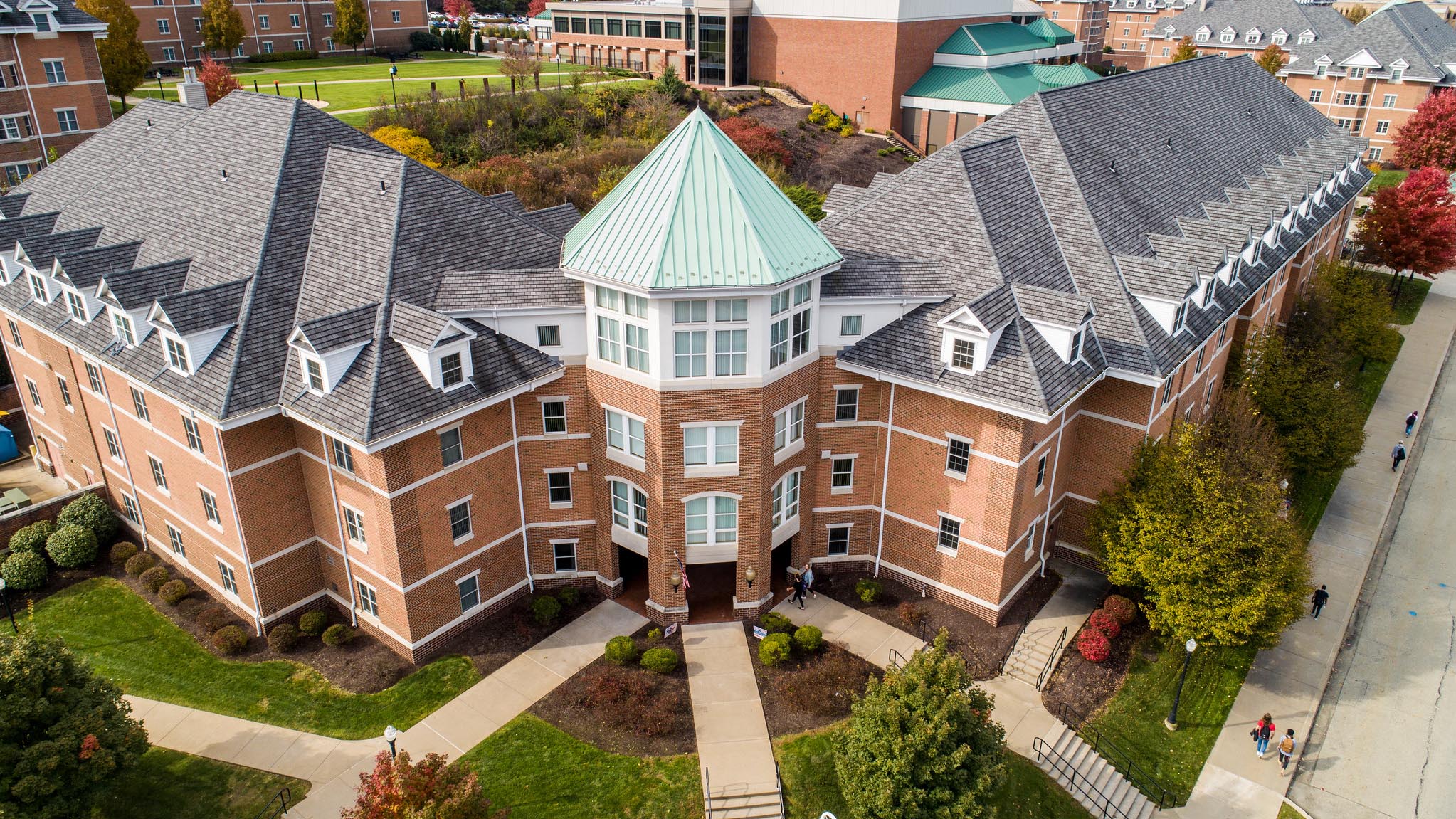The success of Cal U's living-learning communities is also part of the report to the University's Council of Trustees.

At its final meeting of 2019, Cal U’s Council of Trustees unanimously approved a 3.5% increase in residence hall room rates.
Beginning in fall 2020, students who live in on-campus residence halls will pay between $115 and $156 more per semester, depending on the type of room they select.
This is the first time that room rates have risen since 2012, said Robert Thorn, vice president for Administration and Finance.
“In that time the cost for utilities, personnel – nearly everything – has gone up,” Thorn said. “We have worked hard to keep room rates as low as possible, knowing what it means to our students. But the residence halls have to pay for themselves.”
Dr. Nancy Pinardi, vice president for Student Affairs, also discussed on-campus living. Her report to trustees focused on the success of University Housing and Residence Life, including the Diversity, Equality and Inclusion (DEI) and First Year Experience living-learning communities.
Based in Smith Hall, the DEI community celebrates the diverse backgrounds of all its residents. Students are encouraged to embrace their identities, and gender-inclusive roommate pairings are an option.
The First Year Experience community will expand from a single floor to encompass all of Guesman Hall in 2020-2021, Pinardi said. The community provides intentional programming to help first-year students learn to live independently and make good decisions.
Cal U’s six on-campus residence halls are staffed around the clock, Pinardi noted. Three resident directors, three graduate student resident directors, 38 community assistants and184 desk assistants support Cal U students who choose to live on campus.
“Our staff gets involved with each of their students,” she said. “Residence Life provides them with opportunities to learn and grow while they live, study and play in the residence halls.”
Trustees also heard a report by CPA Jared Clark, an auditor with the CliftonLarsonAllen accounting firm. The auditors annually examine the University’s budgeting process and financial controls, scrutinizing the way revenue and expenses are handled and recorded.
“We found no material weaknesses in your internal controls,” Clark said. The firm’s “unmodified opinion” means “your numbers are fair and true.”
In other business:
University President Geraldine M. Jones reported on the University’s financial stability policy, which is part of the State System’s redesign. It includes creating uniform budget processes across universities, allowing all 14 schools to better evaluate financial strengths and weaknesses.
“This policy gives greater visibility into uniform indicators that we can use to make strategic decisions,” she said. “It is a tool to ensure our long-term planning aligns with current and future economic and demographic trends.”
Dr. Bruce Barnhart, provost and senior vice president for Academic Affairs, reported that Cal U will award 1,040 graduate and undergraduate degrees at winter Commencement ceremonies Dec. 13 and 14. Among the graduates are members of the second cohort of the Doctor of Health Science and Exercise Leadership program.
Barnhart also noted that Cal U continues to prepare for the March visit by a peer-review team from the Middle States Commission on Higher Education.
T. David Garcia, vice president for Enrollment Management, reported that freshman applications are up 30% compared to a year ago, and the number of first-year students accepted for fall 2020 is 11% higher than at this time last year. In light of demographic trends, “improving retention and persistence is our biggest opportunity to grow enrollment,” he said.
Thorn reported on a variety of capital projects, noting renovations at Lilley Field are nearly complete and the field should be ready for the spring softball season. In Eberly Hall, a new molecular biology lab is expected to be online this spring, when construction will begin on specialized facilities for the veterinary technology program.
At Thorn’s request, trustees also approved a one-time New Student Orientation (NSO) fee of $100 for all incoming students. The fee covers the cost of meals for students and their families who attend NSO, as well as other expenses for the full-day program. Last year 13 NSO programs were held from mid-May through August.
Christine Kindl, vice president for Communications and Marketing, reported on updates to Cal U’s “Build You” marketing campaign. New images of Cal U students are appearing in digital, print and outdoor advertising as the campaign enters its second year. The marketing team is using research from Carnegie Dartlet, a leading communications marketing firm, to determine which images are most likely to be effective within specific communities.
Tony Mauro, vice president for University Development and Alumni Relations, reported that Cal U raised more than $6.3 million for the 2018-19 fiscal year. The total was included in the Development Office’s annual Voluntary Support of Education reporting.
Mauro also reviewed recent alumni events and informed the trustees of upcoming activities, notably the University’s signature fundraiser, the Bow Ties & Pearls Ball, set for May 2 in the Cal U Convocation Center.
California’s Council of Trustees is scheduled to meet again March 4.
